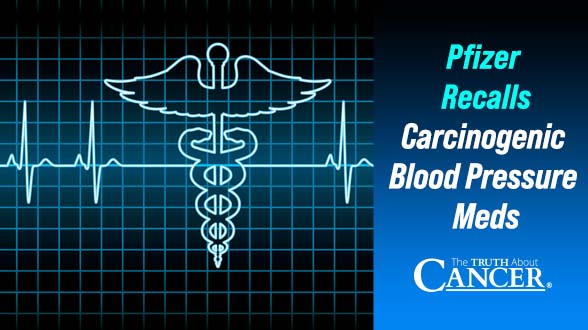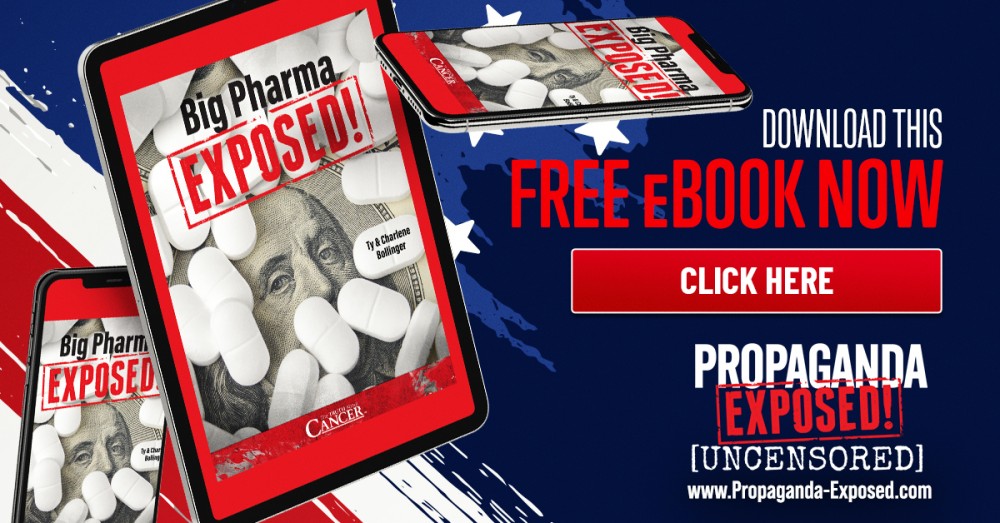[Editor’s Nore: This article was originally published in April 2022. It has been updated in October 2022.]
It’s difficult to find new ways to tell the same story over and over again, but that’s exactly how things have been working out for us. Pfizer seems to be at the center of these redundant stories… and this one is no different. Remember in April 2021 when Pfizer had to recall anti-smoking drug Chantix after testing found high levels of carcinogenic material in the pill? Chantix is prescribed to over half a million people each year and accounts for $1.1 BILLION in revenue for Pfizer each year.
Unfortunately, nothing seems to have changed at Pfizer…
Accupril
Earlier this year, Pfizer recalled yet another drug after discovering contamination with a probable carcinogen. The pharmaceutical giant recalled five batches of its Accupril blood pressure medication, while Pfizer’s Canadian division recalled all lots of the medicine after finding the same cancer-causing agent.
The culprit is nitrosamine, known commonly as NDMA. It is a probable carcinogen, meaning that it can likely lead to an increased risk of cancer.
NDMA is an N-nitrosamine, a type of compound that has the generic chemical structure R2N–N=O, a deprotonated amine bonded to a nitroso group. N-nitrosamines are generally formed when a secondary or tertiary amine reacts with a nitrosating agent.
The drugs were distributed in the United States and Puerto Rico between December 2019 and April 2022, a Pfizer news release said. The bottles come with 90 pills and are prescribed in 10mg, 20mg and 40mg increments. The number of pills per bottle can be broken down into smaller amounts.
Nitrosamines are ubiquitous, popping up in water and foods like cured and grilled meats, plus dairy products and vegetables. Everyone is exposed to nitrosamines in some capacity, but the risk of cancer increases with exposure to higher levels, especially over longer periods of time.
Nitrosamines have been the culprit behind countless recalls in recent years—most notably on valsartan blood pressure meds and metformin diabetes drugs. An overabundance of nitrosamines also prompted Pfizer’s sweeping Chantix recall in 2021.
In 2018, blood pressure medication valsartan, sold under the brand name Diovan, was also found to be contaminated. In that case, the FDA issued a voluntary recall of the drug, citing the risk of developing cancer.
Because these N-nitrosamine contaminants are possible carcinogens, regulatory agencies have been deeming the drugs unsafe for people to take and recalling them from shelves. Valsartan was recalled in July 2018, followed that October by irbesartan and in November by losartan, two other ARBs also found to contain NDMA and the related compound N-nitrosodiethylamine (NDEA).
In September 2019, the FDA alerted the public to the presence of NDMA in certain lots of ranitidine, available over the counter as Zantac, and manufacturers pulled it from the shelves in the next few months. Nizatidine, another heartburn medication, was recalled by manufacturer Mylan in January 2020. And most recently, the FDA suggested that manufacturers of ranitidine recall all lots and types of these medications. NDMA has also been found in metformin, a diabetes drug taken by over 15.8 million people worldwide. Since May 2020, various companies have recalled more than 170 products containing metformin. The FDA website has a full, searchable list of these products.
Paxlovid
We published an article in May about Pfizer’s COVID pill, Paxlovid. The pill was has been heralded as a quick and effective way to combat the SARS-CoV-2 outbreak, with many hoping that a pill form of treatment will help persuade the hundreds of thousands of Americans who have declined COVID shots. But there’s a fatal flaw with Pfizer’s latest drug: Patients who take Paxlovid are reporting secondary cases of COVID-19.
Often referred to as a “rebound” or “relapse” of COVID-19 after taking the standard five days of Paxlovid pills, experts say key questions need to be answered around why it happens, who is being affected, and how doctors should handle the cases. Ironically, we learned earlier this week that CDC director Rochelle Walensky is experiencing a COVID-19 rebound… right after she finished her course of Paxlovid.
Walensky had experienced mild COVID-19 symptoms less than ten days ago. After completing a course of Pfizer’s Paxlovid, and a period of isolation, she had tested negative for the virus, but on Sunday, she tested positive again. And she’s not alone. Joe Biden and Anthony Fauci ALSO experienced a secondary case of COVID-19 shortly after completing their first course of Paxlovid.
Further Malfeasance
Unfortunately, the issue of Pfizer making millions of dollars by selling unsafe drugs isn’t new. Pfizer has paid out BILLIONS in fines and settlements for promoting unsafe products, pushing off-label use on doctors, and lying about the safety or efficacy of their products.
In 2009, Pfizer (and its subsidiary Pharmacia & Upjohn Company) paid $2.3 BILLION to settle criminal and civil liabilities for illegal promotion of their pharmaceutical products. The amount included payment of more than $102 million in civil settlement to six whistleblowers of the company’s fraudulent practices and was the largest healthcare fraud case in the history of the Department of Justice! And the largest criminal fine in history!
Bextra, an anti-inflammatory drug that was withdrawn from the market in 2005 due to safety concerns, was marketed by the company for various off label uses. The company also illegally promoted several other drugs, including antipsychotic drug Geodon, antibiotic Zyvox, and anti-epileptic drug Lyrica. Healthcare providers received payments for prescribing these drugs to patients for off-label use… literally bribing doctors to prescribe untested and unapproved drugs to patients.
False claims were submitted to government healthcare programs, allowing them to bypass the insurance programs. Pfizer had to pay approximately $1 BILLION to Medicare, Medicaid, and other government insurance programs under the settlement.
And that’s not all…
In 1993, anti-seizure drug gabapentin was widely prescribed for off-label uses such as treatment of pain and psychiatric conditions. Courts ruled that Pfizer utilized propaganda campaigns, paid for favorable research and coverage, and suppressed unfavorable research regarding the drug. Several regulatory bodies found the drug ineffective for the associated ailments, and Pfizer paid $430 million in one of the largest settlements to resolve criminal and civil health care liability charges.
In 1994, Pfizer agreed to pay $10.75 million to settle claims by the United States Department of Justice that the company lied to get approval for defective heart valves that killed roughly 500 people.
In 1996, an outbreak of measles, cholera, and bacterial meningitis occurred in Nigeria. Pfizer representatives and personnel set up a clinical trial and administered an experimental antibiotic, trovafloxacin, to approximately 200 children. Local officials reported that more than fifty children (over 25%) died in the experiment, while many others developed mental and physical deformities.
We could continue, but you probably see the pattern here. Pfizer doesn’t care if their products are safe.
You may be thinking be thinking “What about the FDA? Isn’t the government regulating these companies?”
It certainly doesn’t hurt that Pfizer seems to have regulators in their pocket. In 2019, FDA Commissioner Scott Gottlieb stepped down from his role as the head of the regulatory body. Less than 3 months later, he took a lucrative position on the Pfizer board of directors.
The announcement has received much criticism, with one U.S. Senator calling for his resignation, saying that the move “smacks of corruption.” Leigh Turner, a bioethicist at the University of Minnesota, tweeted the following:
“The next chapter of Scott Gottlieb’s career will be played out in the inner sanctums of Big Pharma — forever reinforcing the FDA’s critics of the revolving door between the agency and the industry.”




















I have a question on the Lyrica drug mentioned that was illegally promoted in your article. Is it also carsinogenic? I was given a prescription for my fibromyalgia flare ups. I do not take it regularly, but on occasion. How do I find out how safe this drug really is?
Good question. I would like an answer as well, and I take Lyrica daily for years now. 🤔
I’m taking Varsaden blood pressure medication, they did recall once, is this the same thing again? what do you do to get your blood pressure down while you try to get off this medication. this is very scary stuff!!!! We shouldn’t have to live in fear of the medication that is supposed to help us, which turns out to kill us. what a total shame.
Betty Murray
My husband is taking Sadoz Canada version of blood pressure meds called perindopril erbumine. We are live in Canada and this is a Sadoz is Canadian medication, Pfizer was in canada too for years. Is there a website I can go and look at this drug and if there are any recalls or claims regarding this pill?
Scary stuff how these pharmacies will go ahead and prescribe without telling the buyer about any claims. Thx Trudy
Drugs.com may be helpful